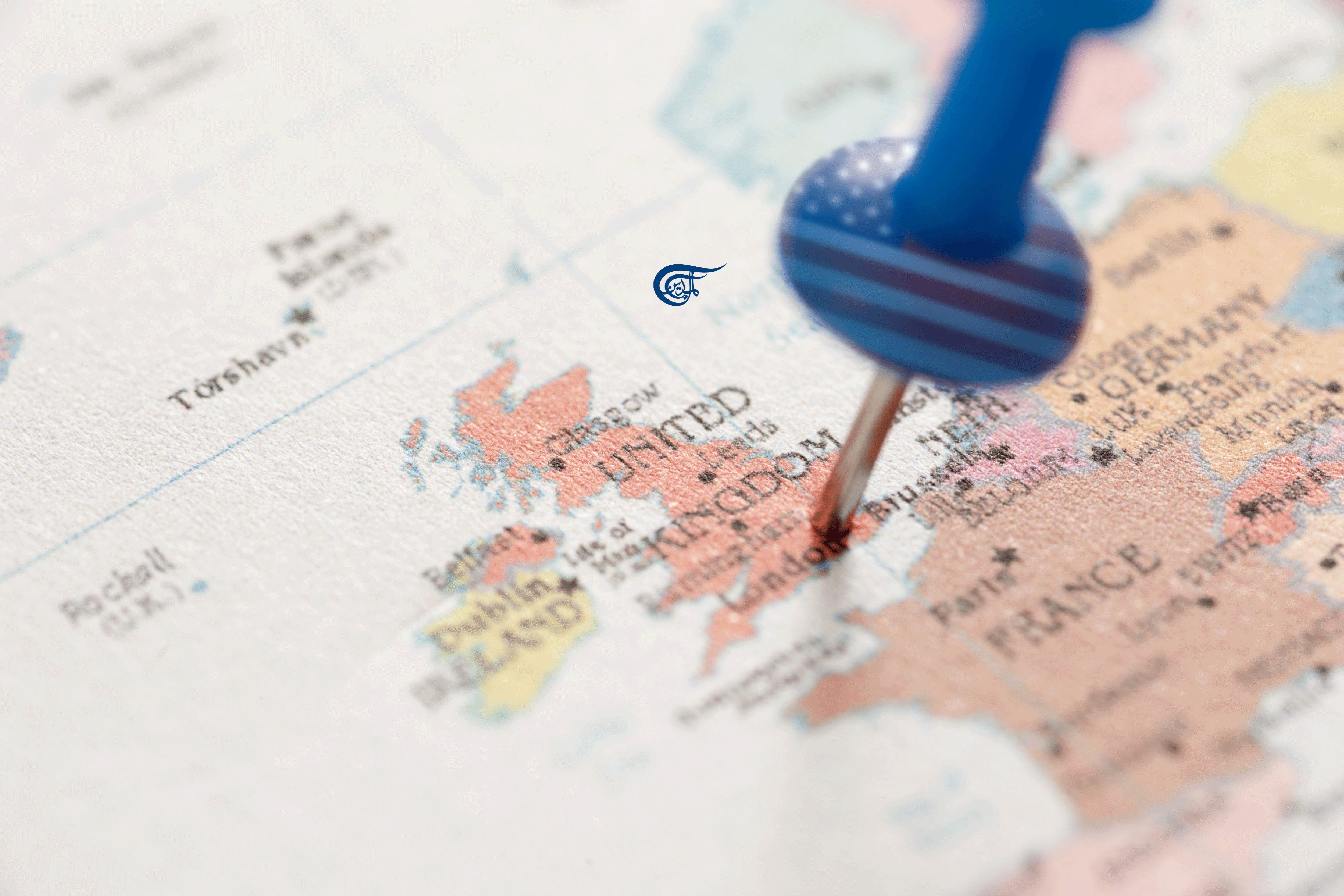Time to Ditch Britain’s ‘America’s Poodle’ Hoax
“The British Commonwealth and Empire is not a unit that can be defended by itself…The conditions which made it possible to defend a string of possessions scattered over five continents by means of a fleet based on island fortresses have gone.”
-

It is high time the British “America’s poodle” myth is seen in the same light as the British false propaganda which justified the imperialist war on Iraq war twenty years ago, that is, as a total hoax.
Against the wishes of the overwhelming majority of world’s inhabitants, American and British imperialist forces, led respectively by George W. Bush and Tony Blair, invaded Iraq twenty years ago on a poisoned puree of allegations and claims revolving around Saddam Hussein, the leader of Iraq, possessing weapons of mass destruction (WMD). The British political and media establishment produced some of the most fabulous lies in the run-up to the Iraq war. Among the most famous fabrications for the case for war was that Iraq could deploy WMDs within “45 minutes” and that Iraq had made ‘Uranium purchases from Niger’. For the warmongers in the imperial metropole, both these fabrications proved Iraq was an imminent threat to “world peace” and both were quickly proved to be false after the invasion.
As short-lived as these fabrications proved to be, another fabrication about Britain’s role in imperialist warmongering has stood the test of time. That is, the notion that Britain is United States’ “poodle”. That is, contemporary British military intervention is a result of Britain’s subservience to United States foreign policy. The implication is that if it wasn’t for American foreign policy, Britain would be some kind of charming non-militaristic entity nonchalantly minding its own business with little interest in warfare. This fabrication was in wide currency in the lead-up to the Iraq war 20 years ago. It was championed by the leading lights of Britain’s anti-war movement, Stop the War Coalition (StWC), such as the late Labour politician Tony Benn, who claimed the UK waged war and invaded Iraq at the “behest” of the US government. Another leader and former Jeremy Corbyn political advisor, Andrew Murray, astonishingly asserted that Britain was “dragged” into the Iraq invasion as though Britain has never ever invaded a country before, while Lindsey German ridiculously claimed that British foreign policy was “dictated” by George W. Bush. Needless to say, there was no evidence for any of these statements, and more so, it wasn’t the first time this myth was peddled.
A brief delve into British political activist history finds this myth was first propounded in the 1960s when students in Britain mimicked American students and discovered political activism against Western imperialist war. The American students, alongside many other groups, had become increasingly vocal against their government's invasion of Vietnam right through the 1960s. Students in Britain jumped on this bandwagon and rationalised that Britain’s establishment support for the American war on the Vietnamese was due to subservience to American foreign policy. This can be deciphered in the biographies of leading students in the period such as Tariq Ali and Christopher Hitchens.
Ali’s UK political awakening coincided with a new dawn in British politics, that is the election of Harold Wilson’s Labour Party government in 1964. And although, like most politicians, Wilson in opposition made himself electable to anti-imperialists by criticising American foreign policy, but once in power he naturally supported the United States’ foreign policy in Vietnam. As Tariq states: “Wilson became an abject apologist for US foreign policy” and he accuses the Labour leaders of being “tame poodles of the White House.”
Likewise, Hitchens had hoped the Wilson government would distance itself from American foreign policy, “I had expected the newly elected Labour government to withhold British support for this foul war (and amazingly coarse and thuggish-looking American president who was processing it), and when this expectation was disappointed I began…to experience a furious disillusionment with ‘conventional’ politics.” Therefore for this 1960s generation of student political activists, it became de facto that to criticise American foreign policy was to criticise British foreign policy. This allowed them to overlook Britain’s own distinctive imperialist wars and even British imperialist history. In the post-World War Two period, Britain was engaged in imperialist wars in Malaya, Kenya, Oman, North and South Yemen and Egypt, but surprisingly these wars do not feature in your typical testimony of British anti-imperialist activism. The main focus was simply to berate Americans for their imperialism and specifically Britain’s alliance with the Americans.
This alliance was born out of British imperialist failure in World War Two. Before the Americans entered the war in late 1941, the British were being beaten from pillar to post. In Europe in 1940, the British Army deserted its fellow white supremacist imperialist allies, the French and Belgians, and scampered off to the coastal town of Dunkirk to be scurried across the English Channel back to England. When the Japanese attacked European colonies in the Far East in countries such as Singapore, Hong Kong and Burma, the British were easily defeated or simply surrendered.
The British realised that it was one thing to subdue technologically less advanced indigenous populations, but when it came to equally equipped forces they couldn’t and wouldn’t do any toe to toe fighting. As the BBC-approved historian, Taylor Downing, has written, before the American entry into the war, the German Nazi army had defeated “the British Army in pretty much every engagement since April 1940”. As such, the British Army Council “concluded that the ‘capitulation at Singapore, the fall of Tobruk and the large proportion of unwounded prisoners in the operations in Cyrenaica’ suggested that the army was in a condition that did ‘not appear to accord with its old traditions’”.
Downing doesn’t explore what these old traditions were but no doubt it included the British Army’s wars in colonial Africa and Asia. On this basis, the British army was found wanting in World War Two; and Downing, to his credit, asks “how Britain could hold its head up post-war, even if it survived the war thanks to American support, if every battle its army fought ended in defeat, humiliation and shame.”
One of the ways it has held its head up is by guilt tripping the Americans and accusing them of entering the war “late”. This is the line taken by John Rees, one of the leading organisers and stalwarts of the StWC who has stated the United States was “late-arriving” to World War Two. For many in the British establishment and its official opponents, revolutionary and parliamentary, it is far more comforting to reassure themselves the Americans were “reluctant” to enter the war, than face the fact the British imperialist forces were pathetic and shameless when up against the German Nazis and Japanese imperialism. Rees is not unique in this sleight of hand. Dr. Richard Seymour, a then anti-war activist, also avoids imperial Britain’s dastardly capitulations during the war in his Liberal Defence of Murder. He simply argues that European “powers were diminishing,” as though the decline was an act of nature and not the outcome of European white supremacist imperialist powers capitulating when up against the German Nazi army in the early 1940s. Seymour also claims that Britain was “beginning to give way to American power” in this period. Surprisingly, he doesn’t elaborate on the gallantry which possessed British imperialists to step aside and give way to American power.
After the war, it was acknowledged that if Britain was to maintain and secure its global interests, an alliance with the United States was essential and a matter of existence. As the first imperialist post-war British Prime Minister, Clement Atlee phrased it, “the British Commonwealth and Empire is not a unit that can be defended by itself…The conditions which made it possible to defend a string of possessions scattered over five continents by means of a fleet based on island fortresses have gone.” They were made “gone” by British imperialism’s complete inability to defend its “string of possessions” in the early 1940s. An alliance with the United States became imperative. So for Atlee, the British Isles needs to be considered, “an easterly extension of a strategic arc the centre of which is the American continent.”
More so, the “poodle” myth provides a further segue for British critics, as already mentioned, to critique American imperialist foreign policy as though they were criticising Britain’s foreign policy. For some reason Britons rarely critiqued the British Empire during its zenith, but now are keen on highlighting the crimes of American imperialism. This reminds one of the comedian Dave Chappelle’s recent comment about President Donald Trump allegedly stealing classified documents. A President “famous for not reading his press briefings”, observes Chappelle, all of a sudden has “ten thousand documents at his house gonna catch up on his reading list.”
Likewise, the British political tradition (especially before the Brexit domestic culture wars), left and right, had next to nothing to say about how the enslavement of millions of Africans or the occupation and pillage of India and Asia made Britain the most prosperous country in the world, but now want to educate and enlighten the world about US imperialism and its hegemony. In effect, these critics flex their anti-imperialist muscles by centrally and mainly focusing on American foreign policy, and there are many who fall for this even though Britain today has over 140 military outposts and bases around the world, and countries such as Bahrain and Oman are colonies in all but name.
In conclusion, the “America’s poodle” label peddled by British critics, some supposedly anti-war, denouncing Britain’s relationship with the United States may seem to be a self-deprecatory rebuke, but a closer historical inspection reveals it to be a humorous hoax. The British elite needed to attach itself to the United States’ hegemon to pursue its own specific imperial interests. Britain’s war on Iraq, led by Tony Blair twenty years ago, helped to further consolidate the British colonial divide and rule of West Asia, as well as obviously placing Britain in good position to exploit Iraq’s natural resources, regardless if hundreds of thousands of Iraqis were killed in the process.
It is high time the British “America’s poodle” myth is seen in the same light as the British false propaganda which justified the imperialist war on Iraq war twenty years ago, that is, as a total hoax.

 Nu’man Abd al-Wahid
Nu’man Abd al-Wahid
 10 Min Read
10 Min Read











